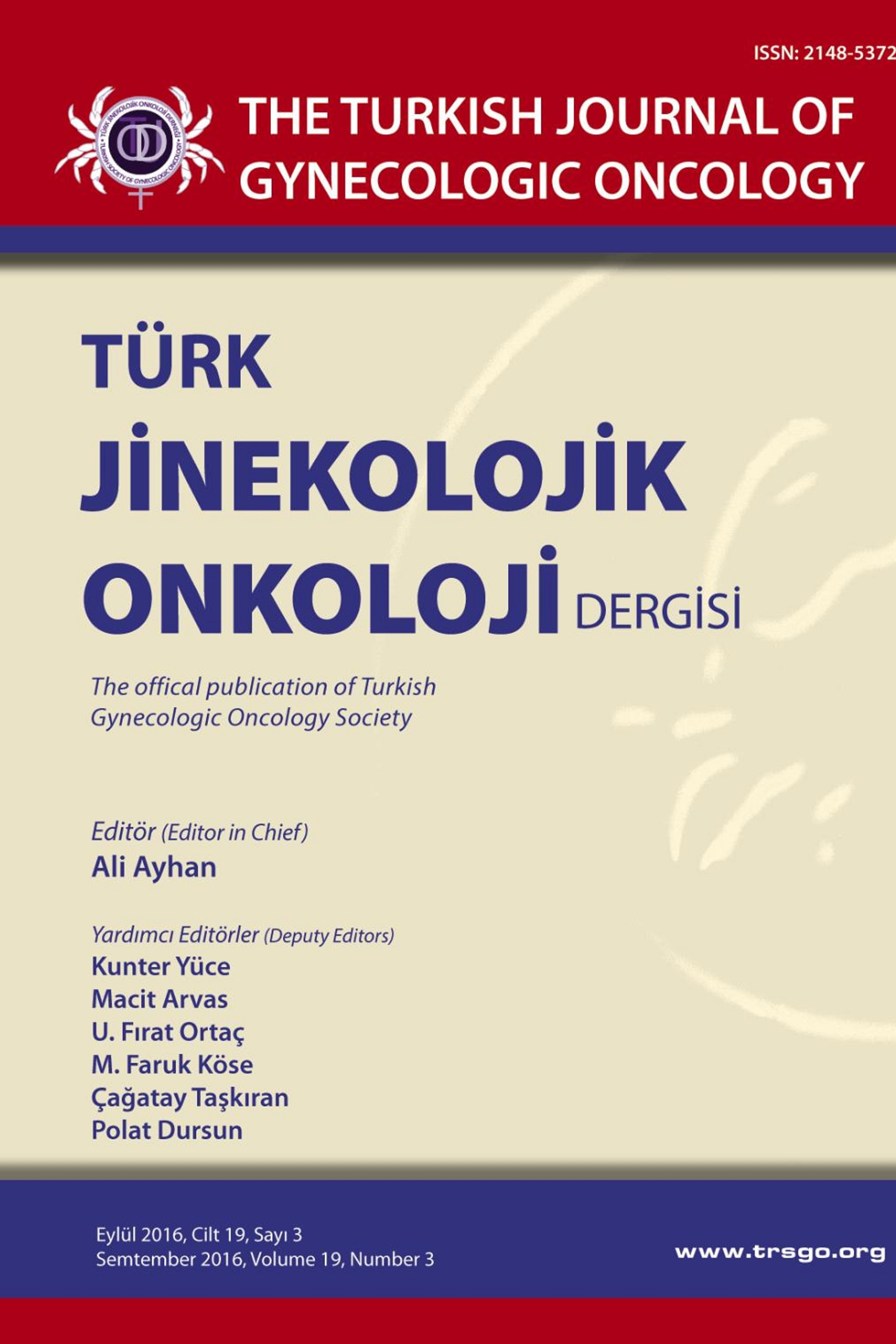GEBELİK VE JİNEKOLOJİK KANSERLER
Jinekolojik tümörler kadın reprodüktif döneminin farklı dönemlerinde ortaya çıkabilen önemli sağlık sorunları arasındadır. Başta endometrium kanseri olmak üzere over, serviks, vulva ve vajen kanserleri kadın genital sisteminin tümörleri arasındadır. Tedavilerinde multidisipliner yaklaşım gerektiren bu tümörlerin insidansı son yıllarda gelişmiş tanı ve artan tarama yöntemlerinin kullanılması nedeniyle artış göstermektedir. Gebelik döneminde de bu jinekolojik tümörlerin insidansı son yıllarda önemli bir yükseliş trendine girmiştir. Tedavinin ana prensiplerini oluşturan cerrahi, kemoterapi ve radyoterapi gebelere bazı farklılıklar göz önüne alınarak uygulanabilmektedir. Gebeliğin jinekolojik onkolojik tümörlerin prognozu üzerine olumsuz bir etkisi olmamakla birlikte fetal viabilite göz önüne alınarak tedavide yapılan gecikmeler, tedavi zamanlamasının yanlış yapılması ve bunların sonucunda tanıda yaşanan gecikmeler tedavinin çoğunlukla postpartum döneme bırakılmasına neden olmaktadır. Bu durum hem maternal sağ kalım sürelerini olumsuz yönde etkilemekte, hem de neonatal sonuçları önemli oranda negatif yönde etkilemektedir. Bu derleme yazısında gebelik döneminde jinekolojik tümörlerin doğru ve uygun tedavi modalitelerini aydınlatmaya çalıştık.
PREGNANCY AND GYNAECOLOGIC CANCERS
Gynaecologic tumors are among the important health issues those can arise in different terms of the female reproductive era. Ovarian, cervix, vulva, vagina and especially the endometrium cancers are the tumors of female genital tumors. In recent years these tumors which acquire multidisciplinary management, have increased by incidence because of the advanced methods of the diagnosis and the screening. There have been also an important upward trend of the incidence of the gynaecologic tumors seen in pregnancy period in recent years. The main principles of the treatment those consist of surgery, chemotherapy and radiotherapy can be applied to the pregnant population by taking into consideration of some differences. There is no harm effect of the pregnancy itself on the prognosis of gynaecologic cancers but also the delay of the treatment because of expectancy of the viability of fetus, the false timing of the treatment and as a result of the delay time of the diagnosis usually causes to reserve the treatment for the postpartum period. This situation affects both the maternal survival times and the neonatal outcomes negatively. We tried to enlighten the right and proper modalities of the treatment of gynaecologic tumors seen in pregnancy, in this review.
